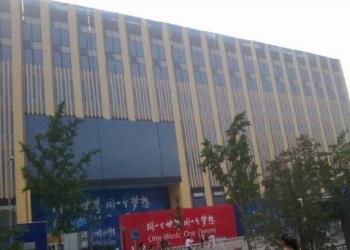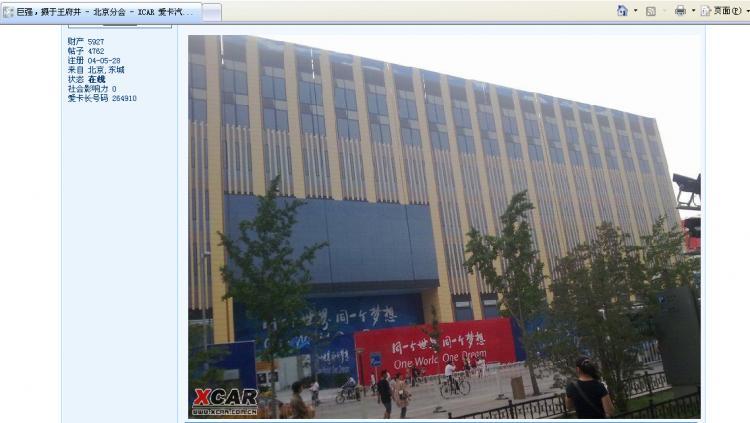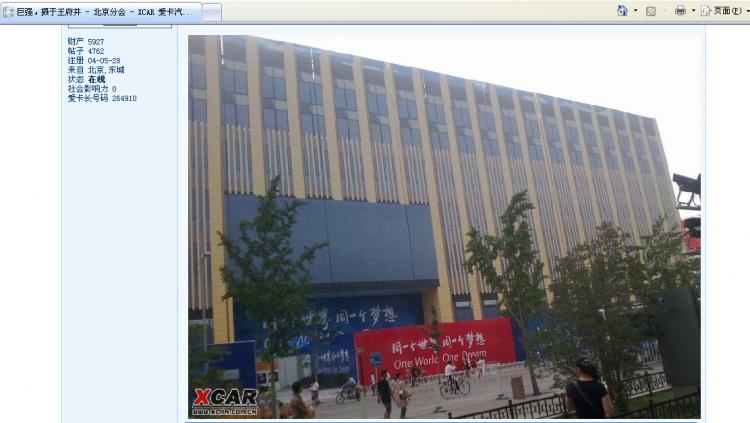As if only faking fireworks, a singer, and a piano wasn’t enough, Beijing one-upped itself in its quest for fakery fame with its latest falsification: an entire building.
In an attempt to “clean up” the city for the Olympics and to put on its best appearance, Beijing tore down dilapidated buildings and repainted old ones. But for one construction site in Beijing’s Wangfujing, one of China’s premier shopping districts, the only thing that could have “fixed” the site was to put up huge boards that mimicked walls of a building outside the site’s construction frame.
Landor’s Ray Allen, who is living in China, discovered the phony building and wrote about his experience on his blog, noting that the “building” is actually “a computer illustration, printed on vinyl film, glued to panels and attached on the unfinished concrete skeleton of an eight-story building.” Though realistic on first glance, he said, he speculates as to whether passersby would realize that they were walking by “Beijing’s biggest fake.”
Beijing’s fanaticism about covering up “eyesores” went as far as trying to make sure the fakery was as real as possible. According to ESPN’s Rick Reilly, the building’s façade even includes a computer-generated image of two businessmen who are talking in one of the windows.
A netizen named “PLAYER0” on the Chinese forum www.xcar.com.cn/bbs/ posted a photo of the “building.” Gaps between the vinyl sheets are clearly visible, along with fake clouds decorated near the top of the “building.”
One of the posters on the XCAR thread explained that “the site is close to Chang'an Street and the Beijing Hotel, but for some reason, [the building that stood there] was de-constructed, and then this year they started constructing there again. But it could not be finished before the Olympics, they covered it up, otherwise it would have been ugly.”
Non-Olympics sponsors’ signs and advertisements were also covered up, according to another poster.
Chinese Netizens Respond
In an attempt to “clean up” the city for the Olympics and to put on its best appearance, Beijing tore down dilapidated buildings and repainted old ones. But for one construction site in Beijing’s Wangfujing, one of China’s premier shopping districts, the only thing that could have “fixed” the site was to put up huge boards that mimicked walls of a building outside the site’s construction frame.
Landor’s Ray Allen, who is living in China, discovered the phony building and wrote about his experience on his blog, noting that the “building” is actually “a computer illustration, printed on vinyl film, glued to panels and attached on the unfinished concrete skeleton of an eight-story building.” Though realistic on first glance, he said, he speculates as to whether passersby would realize that they were walking by “Beijing’s biggest fake.”
Beijing’s fanaticism about covering up “eyesores” went as far as trying to make sure the fakery was as real as possible. According to ESPN’s Rick Reilly, the building’s façade even includes a computer-generated image of two businessmen who are talking in one of the windows.
A netizen named “PLAYER0” on the Chinese forum www.xcar.com.cn/bbs/ posted a photo of the “building.” Gaps between the vinyl sheets are clearly visible, along with fake clouds decorated near the top of the “building.”
One of the posters on the XCAR thread explained that “the site is close to Chang'an Street and the Beijing Hotel, but for some reason, [the building that stood there] was de-constructed, and then this year they started constructing there again. But it could not be finished before the Olympics, they covered it up, otherwise it would have been ugly.”
Non-Olympics sponsors’ signs and advertisements were also covered up, according to another poster.
Chinese Netizens Respond
Comments on the same thread were ambivalent regarding the issue. Some netizens commented that “it’s not a big problem” or that “this is just the practical situation in China.” One even went as far as to urge others that “everything will be OK after the Olympics, so please endure it.”
Others weren’t so content with the cover-up. “It’s just so nasty,” one user commented, while another said, “Hah, this is just the Chinese way.”
Still others saw the fake “building” as a symbol of the Olympics’ impact on ordinary Beijingers. “More and more, the Olympics arouse disgust,” one poster wrote. “When the Olympics come to China, everything smells and tastes differently,” said another.






